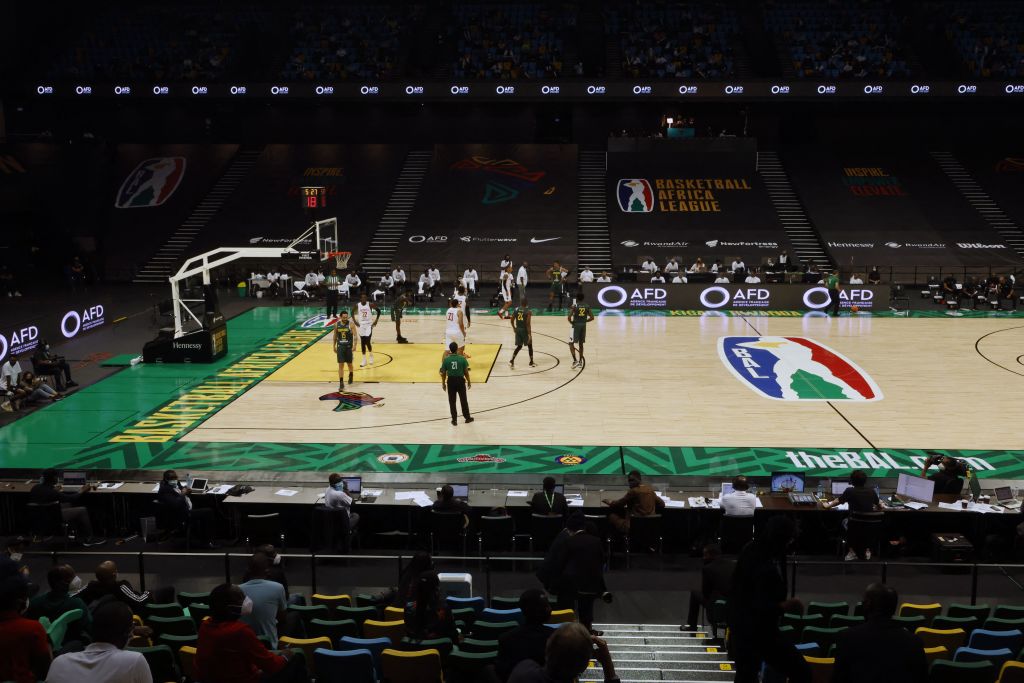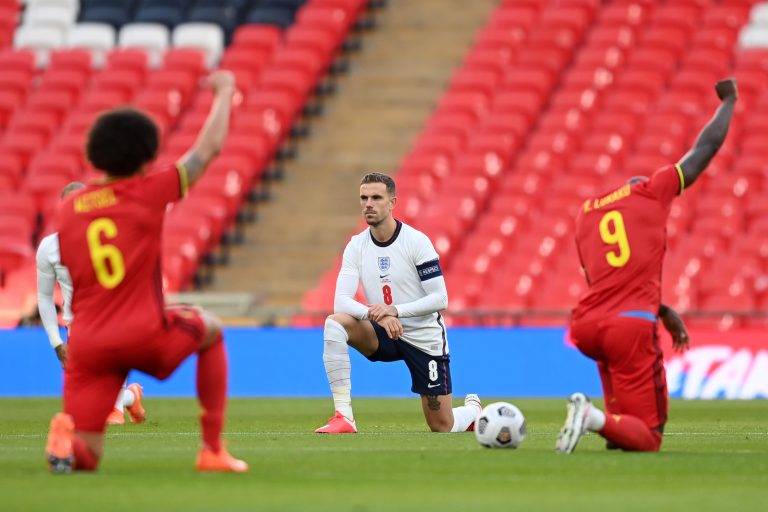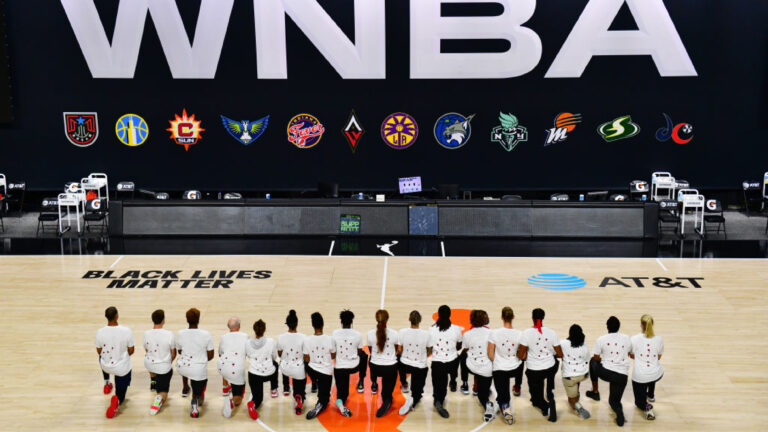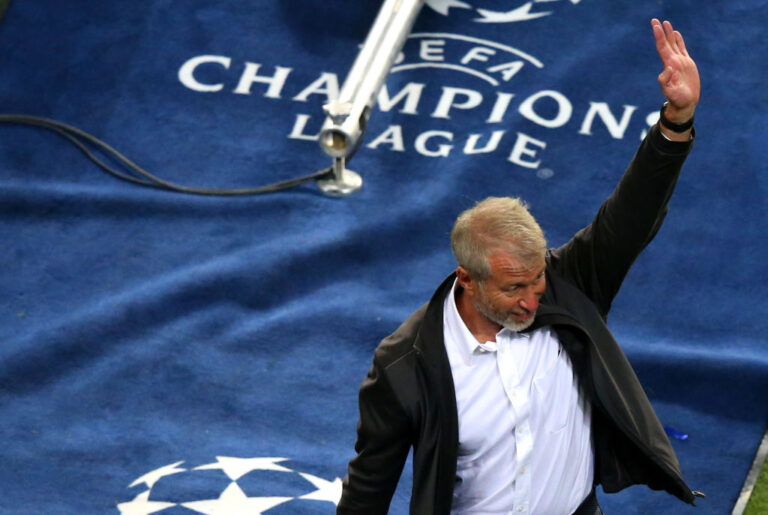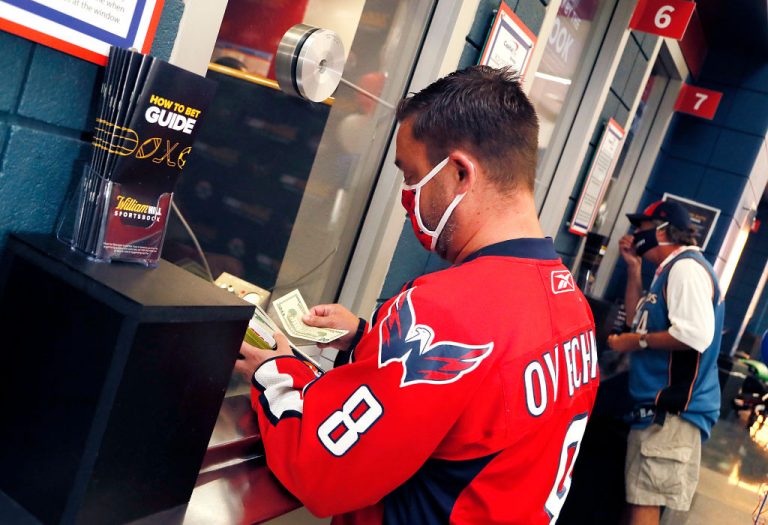Growing Pains: The NBA Faces Ethical Challenges As It Expands Overseas
Why this matters
The NBA has invested extensively in growing the business of basketball overseas. In addition to multiple black eyes from its expansion into China, the league has been enveloped in controversy in Africa as well, intensifying the question of how it can toe the line between its purported progressive values and its clear desire to expand into markets where its ethical priorities may not find a clean fit.
From supporting the 1992 Olympic “Dream Team” to welcoming top international talents such as Giannis Antetokounmpo and Luca Doncic, the National Basketball Association arguably has both pursued and benefited from globalization more than any other American sports league.
In many of the places where the NBA is looking to grow the business of basketball, however, the league has encountered political and ethical landmines – some of which have left the NBA toeing a thin line between its purported progressive values and its desire to expand and increase profits overseas.
Take China. For decades, the NBA has worked to establish itself in the world’s second-largest economy, which happens to have a long basketball history. Those efforts largely have been successful – and lucrative. In 2019, for example, the league extended a digital rights deal with Tencent for a reported $1.5 billion over five years, making the Chinese telecom its largest partner outside the US.
But the relationship between the NBA and China also has been fraught. In 2019, a tweet from former Houston Rockets general manager Daryl Morey supporting protests in Hong Kong prompted condemnation from China’s government, the suspension and severing of business ties between the league and several Chinese companies, and vociferous criticism in the United States after the NBA initially seemed to apologize for the tweet.
Since then, the league has found itself navigating larger ongoing tensions between China and the United States – a state of affairs that was exacerbated during the COVID-19 pandemic and that NBA commissioner Adam Silver acknowledged while answering a question from a Tencent reporter during a news conference before Game 1 of the NBA Finals.
“It’s hard to divorce what’s happening with the NBA from larger geopolitical issues between the U.S. and China,” Silver said. “I do think it remains important that, particularly when tensions are high between governments, that we foster these sports, educational, cultural relationships. We are at root an American company, and so we follow U.S. government policy.”
Walking the talk?
Of course, the NBA is hardly the only American company to face ethical quandaries while doing business abroad. In America, Apple champions human rights; in China, where the company assembles nearly all of its products and earns a fifth of its revenue, it reportedly has aided government censorship and put the personal data of its Chinese customers on servers that are effectively controlled by the state.
Similarly, video game maker Activision Blizzard suspended professional gamer Chung Ng Wai from an esports tournament and stripped him of his earnings after he appeared to shout “Liberate Hong Kong, revolution of our time” during a post-match interview streamed in Taiwan. More recently, Hollywood star John Cena publicly apologized for calling Taiwan – which is considered a province by the Chinese government – a country.
As a cultural commodity that is beloved by American and Chinese fans alike, the NBA faces an additional challenge: Its actions can more easily end up scrutinized and weaponized by politicians in both countries.
Following Morey’s 2019 tweet – which he later deleted – the NBA’s initial statement, in Mandarin, called Morey’s words “regrettable.” In a course correction, Silver later promised not to discipline Morey. Backlash ultimately came from all sides. The Chinese government, Silver later said, directly asked him to fire Morey. Government-aligned media entities such as Tencent stopped broadcasting Rockets games for several months.
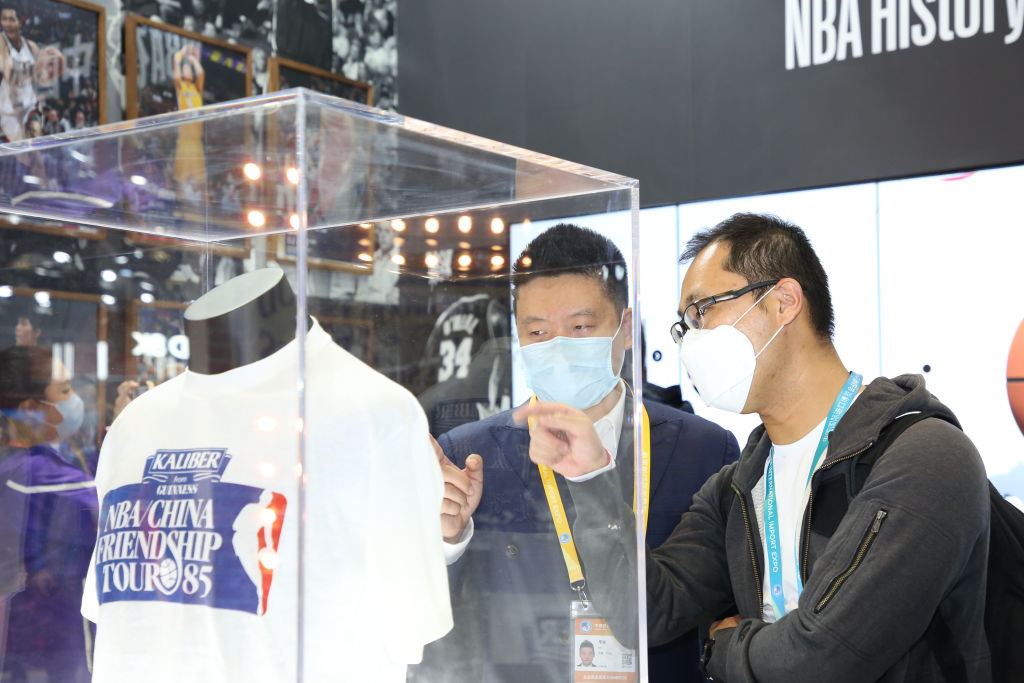
Meanwhile, the NBA was blasted at home for its initial statement, which critics said bowed to Chinese pressure and placed business interests ahead of free speech and human rights. A bipartisan group of eight Congressional members – including Republican Senator Ted Cruz and Democratic Congresswoman Alexandra Ocasio-Cortez – publicly encouraged the league to suspend its activities in China until broadcasters and sponsors end their boycotts. The group also asked the NBA to reevaluate having a youth basketball training center in Xinjiang, where China has been accused of creating concentration camps and a repressive police state for members of the Uyghur religious sect.
“There is more exposure that the NBA has to the Chinese market than a lot of other professional sports leagues,” said Brett Bruen, the president of the Global Situation Room and a former diplomat for the U.S. government. “The challenge for the NBA is, on the one hand, not wanting to close themselves off from what could be their most lucrative market, yet, on the other hand, they also have to deal with the American market and the expectations here.”
Already driven by American consumers who increasingly prefer companies that publicly portray themselves as left-leaning or progressive, those expectations likely have intensified following the murder of George Floyd in 2020 and a subsquent wave of protests and calls for racial justice and human rights. The NBA mostly has supported those movements and goals, a stance that could create an uncomfortable gap between the league’s rhetoric and actions in its next target market: Africa.
Avoiding controversy
For the most part, the NBA’s efforts to increase basketball’s footprint in the continent – from importing star players such as Pascal Siakam to its recently announced Basketball Africa League, which counts former President Barack Obama as a “minority owner and strategic advisor” – have been non-controversial and met with support.
But that could change. A recent report from Human Rights Watch detailed consistent alleged abuse on the part of the head coach of Mali’s Under-18 women’s team. The report details firsthand accounts dating back to 2016 from several young women accusing national team head coach Amadou Bamba of sexual assault. Further, when the young victims went to Mali Basketball president Harouna Maiga, he allegedly intimated that they should keep quiet in order to keep their place on the national teams.
The international governing body, FIBA, launched an investigation into the allegations – but before it began, the organization’s president, Hamane Niang, who himself is Malian, took a leave of absence. Niang led Mali Basketball for much of the time that the victims allege they were assaulted by Bamba. During his time as head of FIBA, Niang formed a partnership with the NBA that ultimately resulted in the creation of the BAL, which counts Mali’s AS Police as one of its 12 teams.
In addition to creating a cloud over the new BAL, the allegations against Bamba and Maiga – and the potential connection to Niang – could become a problem for the NBA if the league is perceived to be doing business with ethically questionable partners or turning a blind eye to morally bankrupt practices.
Related: NBA Academy Grows Game Globally
Last year, an ESPN investigation found that American coaches at three NBA youth training academies in China had told league officials their Chinese partners were physically abusing players and that American coaches were frequently harassed and surveilled while working at an academy in Xinjiang. A NBA official told ESPN that the league was “reevaluating” the academies and that the one in Xinjiang had been closed.
Regarding the Mali scandal, Ahmar Maiga, the president of Young Players Protection in Africa, said that blame lies with FIBA. “Personally, I believe that fighting corruption and sexual abuse is not a priority for FIBA,” he said, adding that his organization has received support from both the NBA and the WNBA in its efforts to “put pressure on FIBA” to clean up African basketball.
Branding, pitfalls, and expectations
As the NBA expands internationally, its players face similar cross-pressures. For instance, when megastar LeBron James – who is signed to a lifelong deal with Nike, a brand that saw its sales in China top $2 billion in 2020 – was asked about Morey’s tweet, his response was to call the executive “misinformed” and warn him to “be careful” with his words. That provoked severe criticism of James, including accusations of hypocrisy and bad faith given his outspoken advocacy for social justice within America.
“Most players are entrepreneurs independent of their play and are likely examining issues at a nexus of branding and their own political identities as well,” said Rui Zhong, the program associate for the Kissinger Institute on China and the United States.
Geopolitical developments entirely outside the control of the NBA and its players also threaten to create pitfalls. The economic relationship between the U.S. and China has grown more antagonistic in recent years, first through former U.S. President Donald Trump’s “trade war” and recently via additions by President Joe Biden to the list of Chinese companies in which American citizens are legally prohibited from investing. In March, the American public’s favorability ratings of China were at a record low 20 percent.
Meanwhile, democratically elected Malian President Ibrahim Boubacar Keita was ousted in May by what The Associated Press termed “extremists” amid violent conflict with Islamist militants. In late July, the coup leader survived an assassination attempt.
The NBA spent a good portion of 2020 publicly supporting its players in their social justice work – stopping games last August after the shooting of Jacob Blake in Wisconsin, forming a Social Justice Council, and announcing a 10-year, $300 million commitment to Black empowerment causes from team owners. Will American fans accept the league partnering with foreign governments and international entities that are seen as indifferent or hostile to those values?
Brooklyn Nets owner Joe Tsai – the NBA’s newest owner, and a Taipei native who decried Morey’s tweet in 2019 – said in an interview this spring that American sports fans have unique expectations when it comes to their favorite teams and that those expectations go beyond wins and losses. “One thing that I realize when you own a sports team is it’s larger than a sports team,” Tsai said. “It’s a social institution. You’re doing it for the fans. You’re doing it for the broader population.”
Clearly, the NBA has no plans to completely divest from Asia or Africa any time soon. They want to make it work. But intense pressure has already come down on the league to stay clear of geopolitical strife or political controversies – and keep its business clean. Yet while the NBA continues to clean up current messes, it risks running into more around the globe.
Monthly Issue
The Risk & Reward of Globalized Sport
Globalization has accelerated since the latter half of the 20th century, making sport a key cultural import. Whether it was a Michael Jordan sneaker or simply a ball and net that helped new communities discover soccer, the United States gave and received sport along with many nations around the world.
It’s unclear if those same silos still exist today. Sport is increasingly a means by which nations interact, and at a higher level of interconnectedness than ever. In what ways is sport's impact being utilized as a tool for development and detriment around the world?

